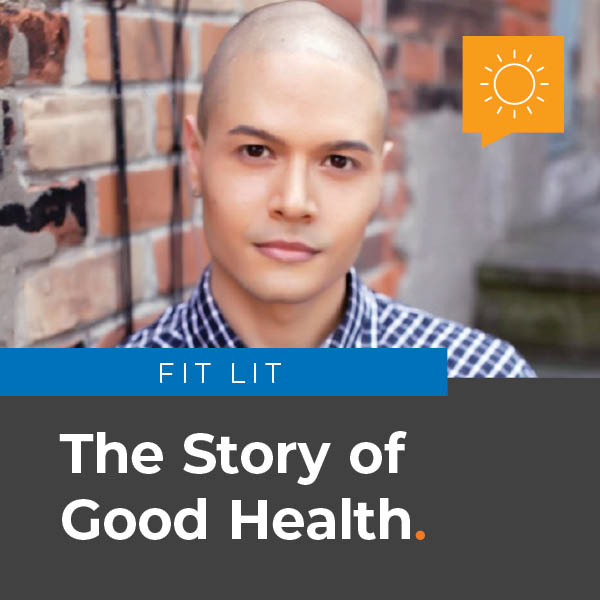
By Christian Adrian Brown
Body, Mind and Quill
ABOUT THE COLUMNIST
Quadragenarian fitness model, lifestyle coach and bestselling author of the critically acclaimed Feast of Fates, Christian A. Brown received a Kirkus star in 2014 for the first novel in his genrechanging Four Feasts till Darkness series. He has appeared on Newstalk 1010, AM640, Daytime Rogers, and Get Bold Today with LeGrande Green. He actively writes and speaks about his mother’s journey with cancer and on gender issues in the media.
Two and a half decades of transforming people’s bodies and minds taught me that physical health inexorably influences mental health. Further, if you want to persevere in many aspects of your life, first aim for dedication in one. Through deaths and heartaches, failures and setbacks, exercise has been the single, unshakable anchor in my life’s many storms. So transitioning from a personal trainer to an author wasn’t as awkward a process as you might imagine. I’d already laid the building blocks to measure long-term success through years of physical training and discipline. Moreover, as a man with baseline anxiety, exercise has long satisfied the need to burn off excess agitation. Finally, as someone who has a family history of depression and mental illness, too, exercise provides me with a foundation of positive mental feedback and biochemical adjustments that I couldn’t imagine my life without.
Likewise, my dedication to physical fitness has strengthened my writing. When you’ve established a routine, especially one that involves challenging adversity daily, sitting down and hammering out 2-3 hours of a manuscript on a religious basis becomes second nature. One more keystroke replaces the “one more rep” mantra. Before you know it, you’ve written 10, 20, then 100K words. For example, I’m currently at 70K words on a manuscript I started on November 7th. Through exercise, we condition ourselves to make slow, meaningful progress. We learn to manage anxiety and expectations. We reward our brains with regular dopamine drips instead of the well-documented and grossly unhealthy spikes and valleys brought on by social media abuse. Persisting on “boring tasks” breeds more than diligence, contributing to mental cohesion in a psychologically fragmented society.
So my writing habits are much the same as my fitness ones. I have a set time, usually 2-4 am, where I write in the stillness of the hours between night and dawn—a truly mystical and quiet window. I am alone, highly focused, sometimes straining and motivated only by the inevitable result of my exertions. I know that if I complete this one segmented task, it becomes part of the chain of an eventual grand production. Nothing else matters but the hypnotic tapping of my keyboard (I adore a clicky keyboard) and the wandering stream of characters, dialogue and drama in which I’m inevitably swept.
In general, part of the momentum for writing is the suspension of doubt and predictive thought and simply doing the thing. Don’t distract yourself with overly loud or even vocal music—classical or instrumental tunes contribute best to the creative mindset. Don’t have the tv or white noise humming in the background. Close the door to your office and shut out the cats if need be—quite the challenge with my gorgeous and precocious darlings! But, above all, sit and do. Don’t worry about what’s ahead because that won’t come without the now.
We spend so much of our lives looking either forward or back. However, life happens in neither of those states. We only experience happiness in the present. I love writing and fitness, and I draw parallels between them because you cannot deny the state of slowing, being, breathing, and weaving a life-long thread from these pursuits.
You don’t need to be a professional or published author to benefit from the freedom and boons of focused expression. So keep a blog or diary. Make an hour to paint, doodle or concentrate on a crossword. Or instead of those activities, get off your butt and do some squats, push-ups or lunges. We only have so much time to live, and regret comes from lives not lived in good health or with meaning.
—C

Continue Reading…
Article originally Published in the February / March 2023 Issue: Connection.
